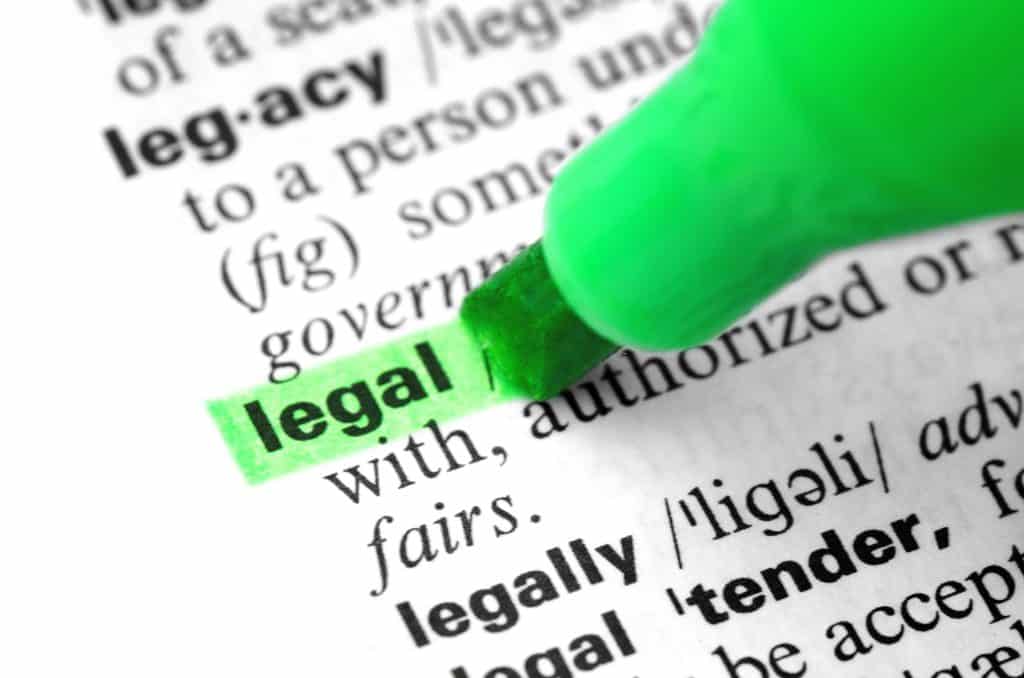When you any kind of business or are responsible for the livelihood of other people, getting by with know-how taken from the latest law or crime drama won’t cut it. As a business owner or someone planning to start a business, you’d need to have a good understanding of basic legal terms to protect yourself and your company.
At the end of the day, not everyone can afford a legal team to guide you through every step you take and back you up. As knowing more about legal responsibilities and possible penalties will help you in making business strategies and in dealing with day-to-day concerns. From your customer relations to your employee management, you would be encountering essential basic legal terms.
What are some basic legal terms?

There is no way to condense pages and years of law experience into a simple article. Lawyers – both for and against your company – sometimes just speak in a different language.
Laws change over time; policies need to catch up with developments in technology and the Internet. Legal terms can also vary in their specific definitions from state to state. For particular cases, it is always best to go through terms with your lawyer or legal counsel.
Here are 15 basic legal terms, their definitions, and how they can apply to your business.
Burden of proof
Burden of proof is the duty of a party to show that allegations in a lawsuit are true or false according to facts. Anyone can claim that a business is cheating its customers, but there needs to be objective evidence to influence the decision one way or another.
This concept typically applies between a defendant, who is the one being sued in a civil case or the party who has charges to answer in a criminal case, and the plaintiff, who is the one who brought up the suit. The person who is accusing the defendant typically has the burden of proof, following the old saying “innocent until proven guilty.”
Civil law
There are many types of law in the United States. Civil law covers legal disputes between private citizens or entities, usually involving negligence and breaches of contract.
Other types of law include criminal law, common law, and statute law.
Compensatory damages
Compensatory damages are a type of damages recovered from an injury or economic loss. For example, a defective product may have led to the injury of a consumer. If the negligence or damage is proven to be caused by the product, the court will award compensatory damages to the plaintiff.
Constitutional law
All laws followed and enforced in the country must be aligned with the constitution. This document is considered the supreme law.
Constitutional law covers the laws written in the federal and state constitutions, their interpretation, and their implementation.
Contract
A contract is a written or oral agreement between two or more parties entailing responsibilities. The agreement may be to do or to refrain from doing a particular act, typically in exchange for something of value.
Contracts can exist between two different companies, a manufacturer and a supplier, the employer and employee, and a business and its consumers. Any breach in the contract becomes grounds for a civil lawsuit. For example, failure to pay the lease on time can already put a business in hot water.
Being careful with the terms and fine print of a contract is a smart way to protect your business.
Diligence
Diligence is defined as the reasonable care or attention to a matter expected of the average responsible person under similar conditions. This means that in cases of an accidental fire, for example, you can be expected to call for other survivors and to contact the authorities, but you won’t be expected to barge in like a trained firefighter.
Another example in the business setting would be a chef or food preparation worker’s diligence in washing hands before handling any food to be served in a restaurant.
Harassment
According to the Equal Employment Opportunity Commission, harassment is any unwelcome conduct that can become a condition of continued employment, or that is severe enough to create a hostile or intimidating work environment. It is a form of employment discrimination, when it is based on race, color, religion, age, disability, sex (including pregnancy) or genetic information.
In cases of harassment, the alleged perpetrator is often the manager or co-worker.
Harassment laws also discuss retaliation, which is the firing or demotion or even further harassment of an employee who has filed a complaint based on discrimination.
Intellectual property
Intellectual property refers to intangible property, including trademarks, copyrights, and patents. As a property right, IP can be protected under federal and state laws.
A patent can be understood as a time-limited monopoly. It is the right to prevent other parties from making, using or selling a product or invention without the authorization of the patent owner.
Trademarks, on the other hand, simply identify the goods made by one manufacturer from the products made by others. They help companies establish their reputation and identity to prevent consumer confusion. Trademarks include elements such as a company’s logo, symbols, words, and names. Many counterfeit products violate intellectual property rights by copying trademarks.
Copyrights give the copyright owner the exclusive right to reproduce, display, distribute, or license a work. This covers books and online articles, though book reviewers and educators can be exempt under “fair use.”
Liability
Liability is a duty or legal obligation. Companies can be liable for their products, which is a form of product liability. An example of this would be the infamous McDonald’s hot coffee case in 1992, where the dangerously hot temperature of the food chain’s coffee led to third-degree burns.
Aside from getting insurance policies, the company structure also influences how liability is handled. A sole proprietorship means that the owner has full liability because the owner and business are treated as the same entity. A limited liability company or a corporation has shareholders or members who are not personally liable for the company’s debts or liabilities.
Malfeasance
Malfeasance covers intentional conduct that is illegal or morally wrong. This includes dishonesty as well as abuse of authority.
Corporate malfeasance covers the crimes which may be committed by officers of a corporation. The securities fraud and financial deception perpetrated by the Enron Corporation in the early 2000s count as an example of malfeasance.
Negligence
Negligence is the failure to take reasonable care to avoid injury or loss to another person. Proving negligence requires proving the existence of a duty of one person to another, a breach of that duty, and an injury or loss resulting from that breach of duty.
Negligence can come in many forms. A customer getting an injury by falling due to physical hazards inside a shop can be a case of negligence, especially if the shop owners took no precautions to ward off, fix, or warn customers about the physical hazard. In business deals, negligence can include the failure to disclose all pertinent information before a merger.
Privacy policy
A privacy policy discloses or explains how a party gathers, uses, discloses and ultimately manages the data of a customer or client. This is a legal requirement for businesses to protect the privacy of a customer.
There is no universal guideline on how specific privacy policies should be worded or structured. However, there are acts such as the Health Insurance Portability and Accountability Act (HIPAA) and the Children’s Online Privacy Protection Act (COPPA) which govern specific industries.
Punitive damages
Unlike compensatory damages, punitive damages are meant to punish the defendant, and even to serve as an example or deterrent to others who may commit the same conduct. Punitive damages are awarded over and above compensatory damages.
Tort
Tort refers to a wrongful act which causes injury to another. The act may be unintentional, such as negligence, or intentional, which may be tried as a criminal act. Tort law is a big part of civil law.
Anything from bodily injury to property damage can be covered by tort law. Businesses typically get a general liability policy and even personal and advertising liability coverage to protect themselves from many cases of tort.
Wage law violations
The Federal Labor Standards Act sets the federal minimum wage. The US Department of Labor also sets out guidelines on minimum wage, and related issues such as child labor, overtime pay and recordkeeping.
Wage laws can vary between states. Having a firm grasp of wage law will protect your company from unintended consequences. A common violation involves employers misclassifying employees as independent contractors to avoid overtime pay.
Why you should know these basic legal terms
You’ve heard about companies suffering from lawsuits coming from their employees, unsatisfied customers, and enraged partners. It’s impossible to rule out these problems completely, even if you do have the best team of lawyers in the state.
The best thing you can do to protect yourself from lawsuits and legal complications is to be prepared and proactive. Understanding basic legal terms will help you spot possible weaknesses and threats, as well as help you strategize with your lawyers in the event of an actual case.


